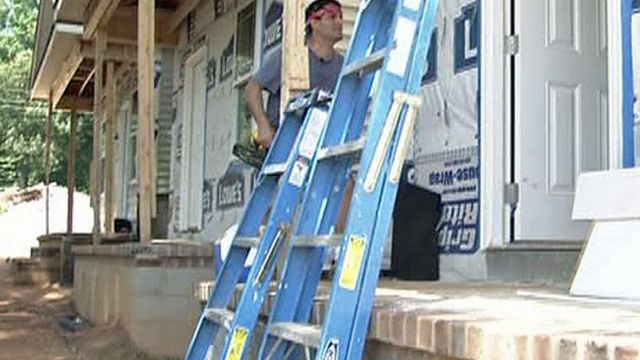Construction industry suffers greatest job losses
Chris Raneri, of Cary, counts himself among the casualties of the recession. Raneri was a construction project manager for six years, working for a national builder, until he was let go in February.
Posted — UpdatedThe Raleigh-Cary metropolitan area lost more than 15,000 jobs -- about 9,200 of them in construction -- in the past year, according to ESC data.
Chris Raneri, of Cary, counts himself among the casualties of the recession. Raneri was a construction project manager for six years. He worked for a national builder until he was let go in February.
“I managed the full gamut – from raw land, all the way up to the finished project,” he said.
Now he is volunteering for Habitat for Humanity.
“I have no bitterness,” he said. “It’s a sign of the times.”
David Clegg, deputy chairman of the state Employment Security Commission, said the Triangle is still better off than other parts of the state. Although construction has been hard hit, the diversity of the Triangle economy keeps the news from being much worse, he said.
Fayetteville saw 9.4 percent unemployment and Rocky Mount recorded 14.4 percent.
“The severity of this recession cannot be underestimated,” Clegg said.
“Even the high-tech Triangle, which many think has the best economic structure for the 21st century, now has an unemployment rate which many thought was not possible.”
Walden predicted that unemployment in the Triangle would continue to climb through the rest of the calendar year before a slow recovery begins in 2010.
• Credits
Copyright 2024 by Capitol Broadcasting Company. All rights reserved. This material may not be published, broadcast, rewritten or redistributed.






